Special Sessions (Tuesday-Thursday)
|
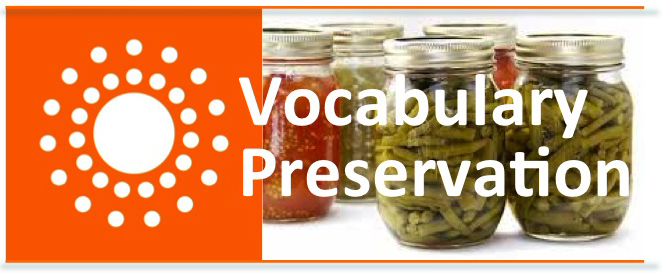 |
Title: Long-term Preservation and Governance of RDF Vocabularies
Day/Time: Tuesday, 11:30-16:00
Abstract: The oldest RDF vocabularies in existence are just fifteen years old. It is time to look systematically at how ownership and responsibility for today's vocabularies will pass to the next generation. This session focuses on issues related to the usability of RDF vocabularies in the long term (as defined in "decades")—continued access to documentation, inheritance of ownership and maintenance responsibility, and the continued resolvability of domain names. What role might memory institutions play in the long-term preservation of vocabularies? «More info»
Special Session sponsored by 
|
 |
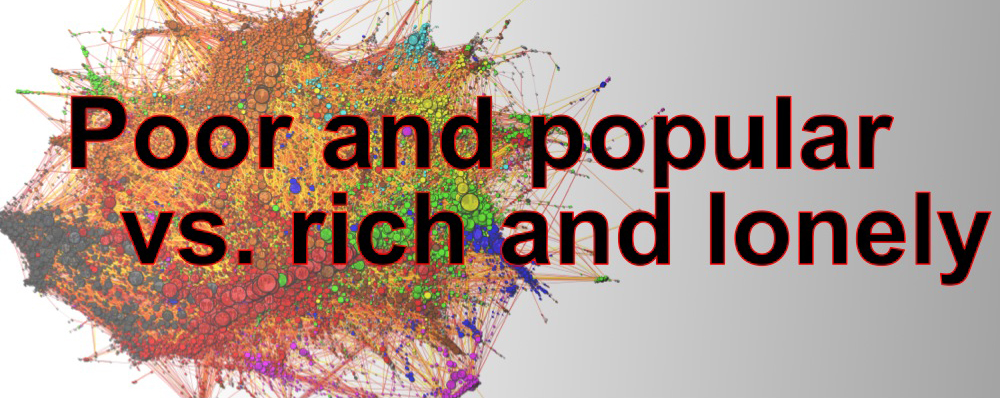 |
Title: Data enrichment and transformation in the LOD context: Poor and popular vs. rich and lonely—Can't we achieve both?
Day/Time: Wednesday, 11:30-13:00
Abstract: Organizations such as libraries who are working on the exposure of their legacy metadata as linked and possibly open data are confronted with a controversial challenge. On the one hand, taking the benefit of Semantic Web technologies to transform or create Library information implies use of rather complicated mechanisms, and domain-specific vocabularies in order to make the most of bibliographic information in a Linked Data context—to make linked data work properly, they need to align and group information using a variety of rich vocabularies even if some of this information remains hidden to the end-user. On the other hand, it seems challenging to combine this approach with a broad and interoperable dissemination of the data among communities outside of the library world, which is a major objective of Linked Data projects—to encourage broader communities to reuse Library data and encourage new combinations and confrontations between datasets to make libraries more useful in the Web environment. How specific or generic should we be? Is this an "either or" situation or can we think of another way to serve our various datasets according to a diversity of needs, specifications and expectations from heterogeneous communities? In other words, are we really doomed to be poor (in our data models and vocabularies) in order to be popular? «More info»
|
 |
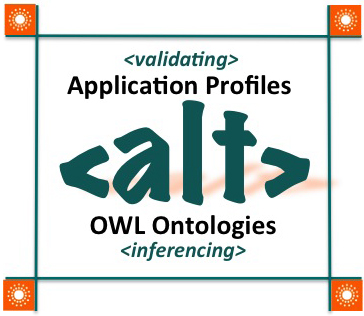 |
Title: Application Profiles as an alternative to OWL Ontologies
Day/Time: Wednesday, 14:30-18:00
Abstract: Since 2000, much of the research and development in the Dublin Core community has focused on the concept of Application Profile. Application Profiles describe the structure and contents of data. Ontologies expressed using the Web Ontology Language (OWL), in contrast, typically define an (inevitably reductionist) model of the world by declaring what classes of things are found in that world, their properties, and their relationships. These can be leveraged to "infer" additional information about things that are described using the ontology. In Application Profiles, constraints are expressed as constraints on data, not as constraints on the underlying RDF vocabularies. This session examines how the dual requirements of (data-oriented) quality control and (Web-oriented) interoperability are addressed using these two approaches. «More info»
|
 |
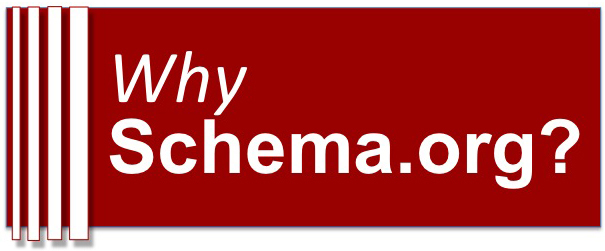 |
Title: Why Schema.org?
Day/Time: Thursday, 10:00-12:30
Abstract: Is embedding Schema.org markup in your html just a way to get a better listing in search engine's results pages, or helping them build their knowledge graphs? Is it more than a search engine optimization technique? Will it have a life beyond Microdata & RDFa? Does its generic broad vocabulary have relevance to domain specific data? Should I adopt it in preference to the ontologies carefully crafted by my peers? All questions that arise when introducing Schema.org to your world. This session will explore these questions, reflecting on how it is being approached by those concerned with bibliographic and other forms of domain specific data, and speculating on the benefits for resource discovery on the web.
Richard Wallis, OCLC
«More info»
Special Session sponsored by 
|
|
Full Day Workshops (Friday)
|
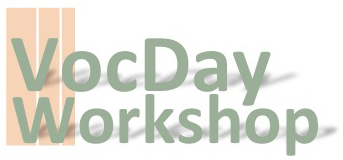 |
Title: Vocabulary Day
Abstract: Vocabulary Day 2013 is designed to inform and focus discussion over a variety of vocabulary development and maintenance topics, identified by the « DCMI Vocabulary Management Community » based on its full-day workshop in The Hague, in 2011. Participation in VocDay is open to anyone who has an interest in these topics, and background materials will be available well before DC-2013 for those desiring some prior preparation. The Day is organized in collaboration with the « DCMI Bibliographic Metadata Task Group ».
In addition to providing an opportunity for practitioners both experienced and new to these topics to come together and focus their attention on these critical issues, the sessions will aim to look forward towards addressing those needs for best practices documentation. Sessions will begin with short background presentations to set the stage for discussion by attendees. In all sessions, discussion will emphasize the definition of practical goals and tasks designed to move the community forward. Ideally, the participants will be sufficiently encouraged to join task groups to continue the discussion and work towards recommendations and actions. «More info»
Workshop sponsored by: DC-Vocabulary Community & DCMI Bibliographic Metadata Task Group
|

|
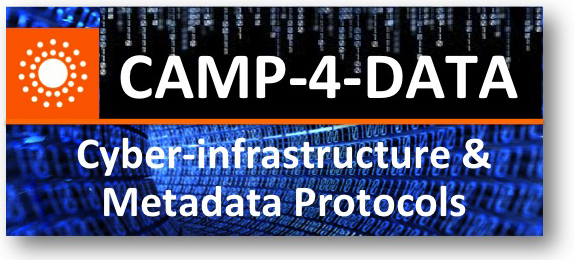 |
Title: CAMP-4-DATA Workshop
Abstract: The CAMP-4-DATA will explore infrastructure design, applications, and policies that can support open and sustainable access to metadata standards used for managing scientific data. CAMP-4-DATA is motivated by a need to bring together metadata communities targeting scientific data (DC-SAM and RDA specifically), and other communities that have important implications for advancing current metadata practices surrounding data (e.g., CERIF, CKAN, DCAT, data.gov, datanets, ENGAGE, ESIP, INSPIRE, LOD, OpenAir, and W3C-GLD & LDP. The workshop includes four segments:
- brief presentations to set the stage—supported by peer reviewed short papers;
- a tool exhibition;
- breakout group discussions addressing targeted infrastructure and policy questions; and
- synthesis reporting.
«More info » « CAMP-4-Data Call for Participation »
Workshop sponsored by: DC-Science & Metadata Community (DC-SAM) & Research Data Alliance (RDA) |











![]() DCMI's work is supported, promoted and improved by « Member organizations » around the world:
DCMI's work is supported, promoted and improved by « Member organizations » around the world:


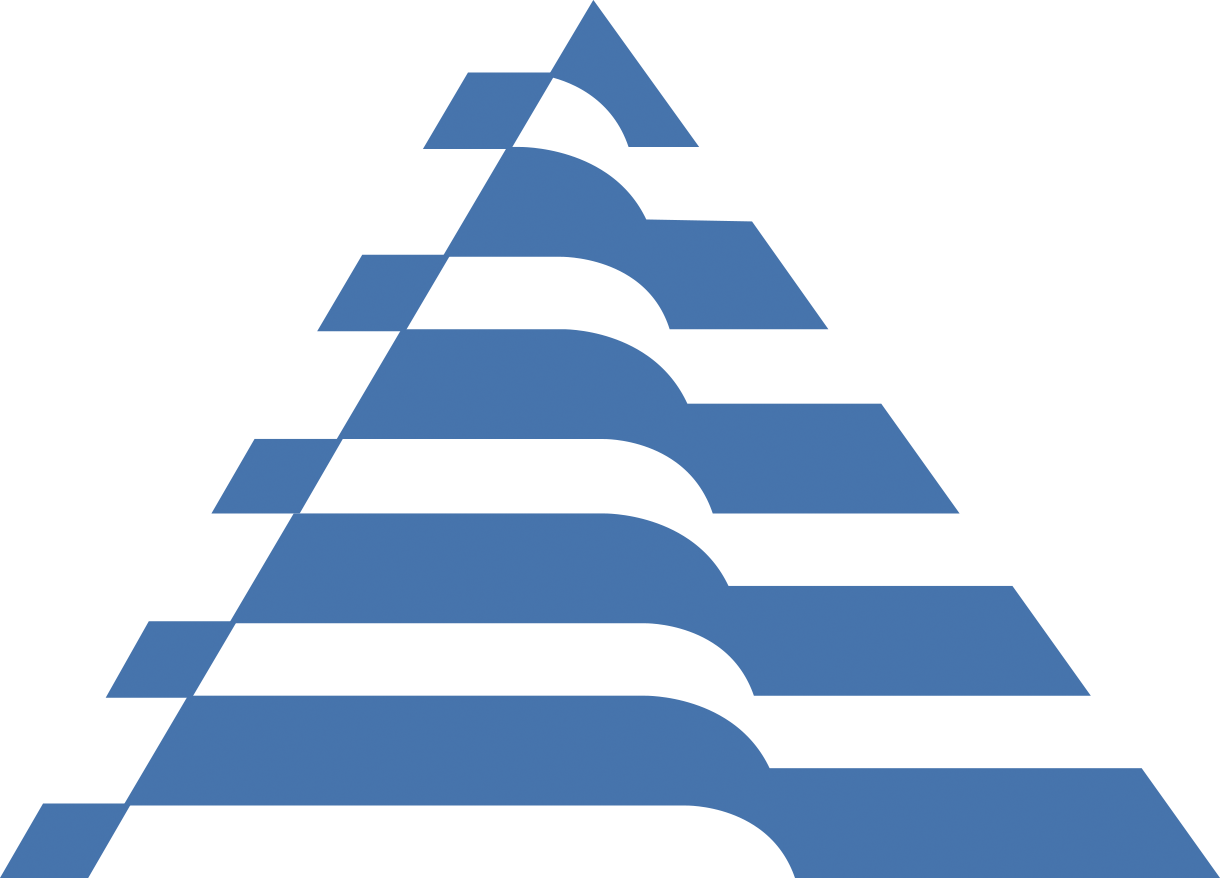









![]() DCMI's annual meeting and conference addresses models, technologies and applications of metadata
DCMI's annual meeting and conference addresses models, technologies and applications of metadata

